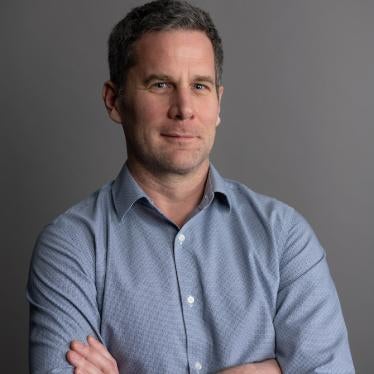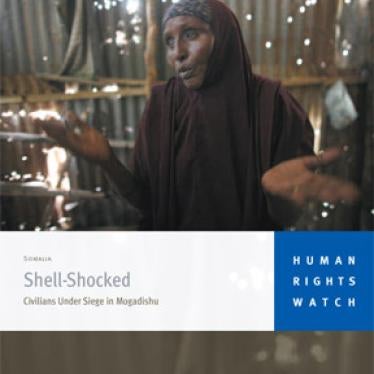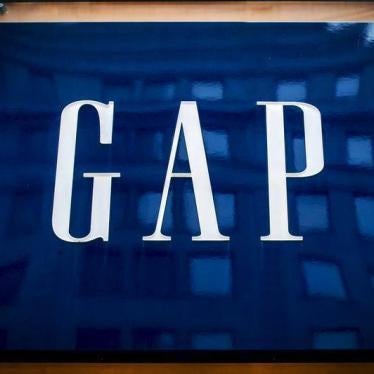Sixteen-year-old Hamida sits quietly by a crumbling shelter on the edge of Dadaab, the world's largest refugee camp and her new home in Kenya.
She was separated from her parents during fierce fighting in Somalia's capital, Mogadishu, in July and her uncle was killed by a rocket.
Somali militia members attacked the minibus taking her to Kenya and took her belongings.
Hamida paid smugglers to help her dodge Kenyan police patrolling the country's closed border and looking for bribes.
As she reached the camp, the Kenyan police stopped her and took her to a police station, where she was held for three days in a small cell with 20 others.
"The police beat me on my arms, legs and back with a wooden stick and a whip made from a car tyre and said I had to pay money to be released," she said. "I was hurting too much so I gave them the $50 hidden under my headscarf. They released me. But then I could not get registered for food so I begged someone to help me.''
She told me she is now making some money helping an older refugee, with whom she has started a relationship. "What choice do I have?" she asked.
Hamida is one of at least 65,000 Somalis who fled the fighting and humanitarian crisis in Mogadishu and entered Kenya in 2008, more than triple the number in 2007.
Some of the new refugees describe extortion and serious abuses by Kenyan police.
Some were forced back into Somalia because they could not pay bribes. Others like Hamida said they were arrested, beaten and held in appalling conditions in police stations in the camps or in nearby towns.
Refugees who survive the Somali militias and Kenyan police face additional problems when they go to one of three overcrowded and under-serviced refugee camps near the Kenyan town of Dadaab.
By year's end these camps - designed for 90,000 refugees - will shelter 250,000. Acute malnutrition stands at 13 per cent. Sanitation conditions are appalling.
Health teams cannot meet growing and chronic medical needs. Registered refugees receive the bare minimum of water and the unregistered get no food and beg for water.
In August the three camps were declared officially full; since then new arrivals have received no materials or land for shelter.
Forced to seek help from relatives or strangers, 20 people end up in cramped tents or huts meant for five.
The United Nations High Commissioner for Refugees (UNHCR) - struggling on a tiny budget to cope with the numbers and seemingly unable to control corrupt security guards demanding bribes at the gates - is unable to register all new refugees.
In one hour, I identified 180 refugees - mothers with many children, the sick, the elderly - who said they had tried in vain for weeks or months to register, and had given up, leaving them with no food or shelter.
How has it come to this?
Despite increasing arrivals since 2006, the UN started negotiations for new land - now deadlocked - far too late. The earliest a fourth camp will be ready is mid-2009, and by then, a fifth camp will be needed.
Immediate action is needed.
First, while Kenya may have legitimate security concerns over Somalia, closing its border - which also led the refugee agency to close a transit centre where refugees were registered and given health checks - meets neither its security needs nor its obligation to protect civilians fleeing a war zone.
Kenya should immediately ensure that refugees can cross the border and it should rein in its corrupt police.
Second, UNHCR should urgently take steps to ensure all refugees are registered and the UN Country Team must step in to secure more land.
Third, donor governments, including the United States and European states, should increase assistance to the UNHCR to ensure that Dadaab's refugees, including Hamida, receive the help they desperately need.
Gerry Simpson is a Human Rights Watch researcher who recently spent three weeks in Kenya, at Dadaab and in Eastleigh in Nairobi, speaking with refugees who had recently fled the armed conflict in Somalia







